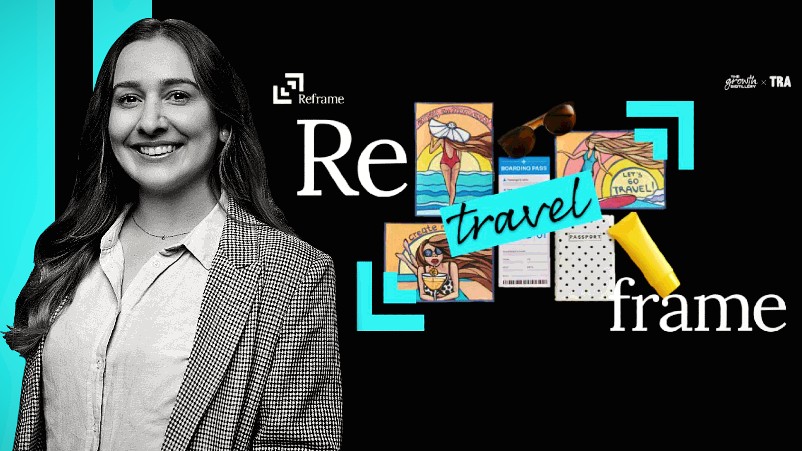Scott Galloway: Why CMOs are ‘dead in 18 months’, work from home is a ‘fucking disaster’ for young men, which jobs will be usurped by AI – and why you shouldn’t worry about it too much

Professor Scott Galloway: "I think the CMO is a little bit like having someone called chief electricity officer."
Professor Scott Galloway thinks 'traditional' CMOs are heading for the great gig in the sky. The only ones left standing will be those knee deep in the "boring shit" of supply chain, product and analytics. He's also bleak on the prospects of mid-weight graphic designers, social media managers and programmers as AI renders them obsolete. Longer term, AI will create more jobs than it takes, per the NYU professor of marketing. But in the short term, brace for the full impact of disruption. Galloway is also deeply concerned about the effects of work from home, particularly on young men: no mentors, no social skills, maybe no families of their own as a result. "Between porn and AI, are men ever going to leave the house? I fear we are raising a lost generation." More broadly, Galloway urges marketers – and everyone else – not to be too hard on themselves and be present in the now. That way, when we eventually do kick the bucket, we can at least be sure our lives really happened.
What you need to know:
- Scott Galloway, professor of marketing at the New York University Stern School of Business, thinks media-driven CMOs are dead.
- “How do you know your life hasn't worked out? You're watching a lot of advertising: Advertising has become a tax on the poor and the technologically illiterate.”
- Hence the CMOs that will survive are those deep in analytics, supply chain, product and digital innovation, per the professor.
- Meanwhile, he fears work from home will have catastrophic long term social effects, especially for young men.
- AI will cause massive short-term pain, with designers, social media managers and programmers likely to feel the first wave, Galloway told ADMA’s Global Forum.
- In the long-term he thinks AI will create more jobs than it takes. But how to soften the full impact on those whose jobs are about to be rendered obsolete?
- Whatever happens to CMOs, young men, jobs and society in general, Galloway cited research from NYU colleagues interviewing people in palliative care. The biggest regret of the dying? Being too hard on themselves and not being present in the present. Per Galloway, we should all probably be a bit kinder to ourselves.
If you [as a CMO] can figure out ways to unlock innovation in product, in digital technologies, I think you're going to survive, [be it as] chief marketing officer, chief innovation officer, chief supply chain officer whatever you want to call it … But if you’re in the business of media, I think it’s a difficult place right now.
CMOs are “dead in 18 months or less,” per Scott Galloway. At least some of them.
The professor of marketing at the New York University Stern School of Business suggests the part of marketing that has a future is “boring shit like supply chain and analytics and product innovation.”
Marketers focused on brand advertising are the ones soon to be rendered obsolete, per the professor. Whether the modern CMO is actually focused on brand advertising is debatable. But Galloway always earns his conference fee with a blend of compelling logic and emotional forthrightness that compensate the occasional truism.
“If you're a CMO who is focused on supply chain and incorporating innovation … if you can scan the world and bring some great ideas and help [the business] be successful, that CMO survives and they become the CEO or SVP of supply chain,” he told delegates at ADMA’s Global Forum.
“If you're the CMO that shows up and says I need more budget so that and I can do a brand identity study and spend money on advertising and get invited to great conferences and hang out with people who are interesting and better looking than me by spending media dollars that are less and less impactful, you’re like the second lieutenant in Vietnam. You’re dead in 18 months or less.”
Galloway suggested most CMOs were “raised in a Mad Men era” where brand, “intangible values and a great campaign” were king.
“I think that the sun has passed midday on those skills,” per the professor, to the point that “I think the CMO is a little bit like having someone called chief electricity officer.”
What Galloway means is that advertising-driven CMOs are dead. Few would dispute that, but he warmed to the theme.
“Show me a company that has added more than $100bn in market cap in the last decade and I’ll show you a company that doesn’t advertise very much,” said Galloway. That’s also debatable. Of the world’s top ten companies by market cap, Apple, Microsoft, Google, Amazon and Meta all spend big on advertising. Tesla is the sole non-consumer advertiser, while the likes of Berkshire Hathaway, Saudi Aramco, Nvidia and Eli Lilli are playing an entirely different B2B game. A flick down the list of those above $100bn market cap also shows a lot of major advertisers.
Either way, Galloway thinks “advertising kind of outs who is not getting it.” In an age of ad-free streaming, per the professor, advertising is for losers (just don’t tell Google, Facebook or Amazon).
“How do you know your life hasn't worked out? You're watching a lot of advertising: Advertising has become a tax on the poor and the technologically illiterate,” said Galloway.
“And so if you [as a CMO] can figure out ways to unlock innovation in product, in digital technologies, I think you're going to survive, [be it as] chief marketing officer, chief innovation officer, chief supply chain officer whatever you want to call it … But if you’re in the business of media, I think it’s a difficult place right now.”
Remote work is a fucking disaster for young men. Where do they find mentors? Where do they meet mates? I worry that we're going to have an entire generation of men who never get to an office, who weren't socialised correctly and enter into these low calorie, low risk relationships with AI girlfriends and sex dolls and never have kids.
Remote working time bomb
While bosses locally and globally try to drive people back into the office without upsetting the apple cart, Galloway is unequivocal. At least when it comes to half the workforce.
“Remote work is a fucking disaster for young men,” per Galloway, a father of two boys. “Where do they find mentors? Where do they meet mates – one in three marriages started at work. Then you have online dating which is even worse, where 10 per cent of the men get 90 per cent of the attention.
“So I worry that we're going to have an entire generation of men who never get to an office, who weren't socialised correctly and enter into these low calorie, low risk relationships with AI girlfriends and sex dolls and never have kids,” he said.
“I fear for young men. There's a reason romantic comedies are two hours not 10 minutes. Between porn and AI, are men ever going to leave the house? We're raising a generation of lost men.”
I would not want to be a mid-level graphic designer. In the next five years the best designers are going to make more money. The best lawyers are going to make more money, but the kind of standard contractors who do a decent job and not a great job… are probably going to lose their job.
AI jobs hit list
Galloway suggests graphic designers outside of top tier may need to retrain as generative AI starts to hit home, fast. Likewise the average social media manager, programmer or healthcare company boss that doesn’t have his or her finger on the pulse.
He predicts a major wave of disruption over the next three years. But designers/social media managers/coders are just the analogical fall guys. Basically, per Galloway, AI is going to cut a swathe through the lower and mid professional order. What can be automated will be automated.
“I would not want to be a mid-level graphic designer. In the next five years the best designers are going to make more money. The best lawyers are going to make more money, but the kind of standard contractors who do a decent job and not a great job… are probably going to lose their job.”
Ultimately, Galloway predicts AI will create more jobs than it kills. But in the before then, there’s pain incoming.
“In the short run it will hurt employees, no doubt about it. The question we have to answer as a society and in terms of government and as voters is do we want to perhaps invest more in the people that are left behind … such that they don’t face the full force of disruption.”
More than anything, dying people’s biggest regret is they wish they’d been less hard on themselves.
Nothing is ever as good or as bad as it seems. Life isn't about what happens to you. It's about how you respond to what happens to you. So a lesson from people at the very end is to forgive yourself and be a little bit kinder to yourself.
Don’t worry, go easy on yourself
Galloway ended his keynote on a deep note, referencing his NYU colleagues’ recent study on people in palliative care. The wisdom of the dying, perhaps a little more meaningful than the future of marketing, threw up a couple of key themes.
“They wished they’d stayed in better touch with people, but more than anything, people’s biggest regret is they wish they’d been less hard on themselves,” said Galloway.
“Nothing is ever as good or as bad as it seems. Life isn't about what happens to you. It's about how you respond to what happens to you. If something bad happens – you get fired, your stock gets cut in half, you have a relationship [fail] – at the end of your life, usually you're upset. But you're not upset about what happened, you're upset about how upset you were and how hard on yourself you were,” said Galloway.
“So a lesson from people at the very end is to forgive yourself and be a little bit kinder to yourself.”
Plus, he said, trading off the present for the future – the basis of all long hours work that takes people away from their family, partners, passions – is equally damaging.
“The fear is [at the end] you ask yourself, was I there for anything? I was constantly in the past. And I was constantly thinking about the future. You know, did my life actually happen?
“So that's the question I would leave each of you with – and it's really simple: Are you here? This is all we have. We can't do anything about the past. The future is less controllable than we all believe. The only thing we have is this, right here.”


